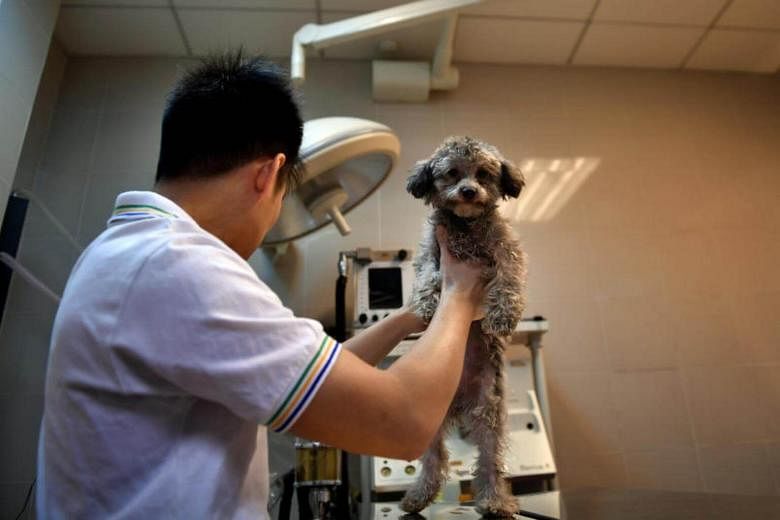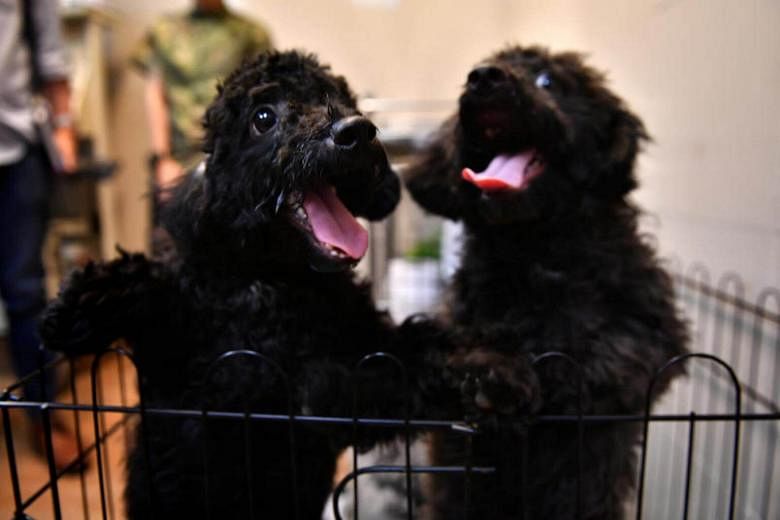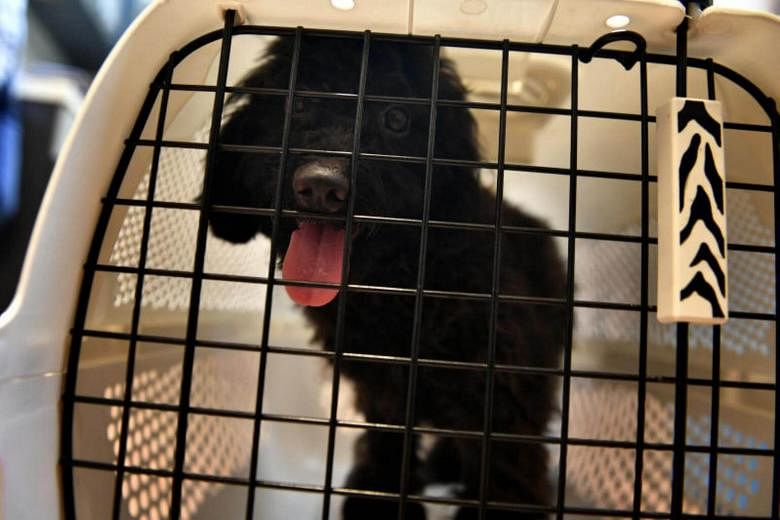SINGAPORE - Outbreaks of rabies in the Malaysian states of Sarawak and Perak have taken five lives, prompting the Agri-Food and Veterinary Authority (AVA) on Wednesday (July 26) to urge the public to obtain their pets from authorised pet shops, breeders and shelters.
Dog smuggling, the AVA said, opens the Republic to the disease, which has not reached its shores for more than 60 years.
It said: "We cannot take our rabies-free status for granted as the disease is endemic in the region."
Since 2014, 110 smuggled dogs have been seized by the AVA. Among them were 11 toy poodle, shih tzu and maltese puppies, which were seized from the modified fuel tank of a Malaysia-registered car in March. The smuggler was jailed for 30 weeks for smuggling and animal cruelty.
On Wednesday, four of the puppies, all toy poodles, were taken to an animal shelter where they will wait to be adopted. The rest of the puppies will follow in the coming weeks.
The dogs have completed 100 days of quarantine at AVA's Sembawang Animal Quarantine Station, during which their health was monitored to ensure that they were not carrying any infectious diseases such as rabies.
Ms Clarissa Frany Francisco, executive manager of AVA's Quarantine and Inspection Group, said: "These 11 puppies have come a long way and are in good shape now. Recently, they passed various health tests, and completed parasite treatments and vaccinations."
When the puppies were found, they were suffering from skin problems and diarrhoea, and were dehydrated.
"We hope that there will be no smuggling cases. Not all smuggled animals have happy endings," Ms Francisco added.
Taking no chances with the rabies outbreak so close to home, the AVA has also sent out advisories since the start of July asking pet shops, vets and other stakeholders to be vigilant.
The advisories tell people how to spot symptoms of the disease and who to contact to raise the alarm.
Rabies is mainly carried by dogs, although other mammals can also contract the disease. It is normally transmitted through a dog bite, when the dog's saliva comes into contact with a wound.




